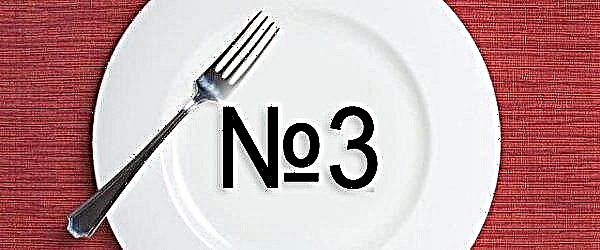Are prunes allowed for breastfeeding?
This question "torments" lactating women quite often. Therefore, before introducing it into your diet, you need to weigh all the "pros" and "cons".
In the first three to four months after birth, the intestinal microflora of the baby is formed, since at the time of birth it is sterile.
Therefore, at this time, a nursing mother should be extremely careful when introducing any foods into her diet. The same rule applies to prunes. If this dried fruit was not previously tried by a woman in labor, or it caused allergic reactions or other side effects, then it is not recommended to use it on the menu during this period. If it was used earlier and there were no such manifestations, then the introduction of its diet should be gradual with careful monitoring of the baby's well-being.
What are the benefits of prunes?
Dried fruit contains a huge amount of vitamins, trace elements, fiber, pectin, fructose, glucose, organic acids, tannins and nitrogenous substances.
This product is classified as hypoallergenic, but this does not mean that it cannot cause side effects.
Its benefits are:
- preventing the development of anemia;
- improving the structure of the skin, the appearance of hair, teeth;
- strengthening immunity;
- improving metabolic processes and maintaining the water-salt balance in the body;
- normalization of blood pressure;
- providing an antidepressant effect;
- improving the work of the cardiovascular and digestive systems;
- lowering cholesterol and blood sugar levels;
- improving memory and attention;
- providing bactericidal action;
- adding energy.

Content of useful elements
This dried fruit contains: magnesium, potassium, calcium, iron, phosphorus, zinc, organic acids, vitamins of groups A, B, and C, pectins, fiber, fructose, glucose, nicotinic acid P, tannins and nitrogenous substances.
Action on the digestive system
This dried fruit has the following effect on the gastrointestinal tract:
- enhances peristalsis;
- regulates the work of the stomach, pancreas;
- choleretic;
- participates in the digestion process.
Therefore, it should not be consumed frequently.
When can and should a nursing mother eat prunes?
This question torments many women in labor, especially in those cases when there are no advisers or, conversely, there are many of them. And some say: "at one time we ate everything", while others "it is better to consult a doctor." So, you need to choose the second option.
Prunes when breastfeeding are primarily recommended for mothers who have a predisposition to constipation. This dried fruit has a laxative effect. In the same way, it acts not only on a breastfeeding woman, but also on a child. Therefore, in the case of hard and irregular stools, it is recommended for the baby to eat at least 2 - 4 things of this product, and after a couple of hours the baby will be able to safely empty out.
But if, on the contrary, the nursing mother or the baby has a predisposition to loose stools, you should not use prunes, as there may be increased peristalsis and intestinal upset.

Contraindications for the use of prunes with HS
The use of this dried fruit is prohibited when:
- the presence of a tendency to allergies to this product in the mother (since the baby may develop a rash on the face and trunk);
- obesity and overweight in the mother (more than one piece per day);
- with bowel disorders (diarrhea);
- there are doubts about the quality of the product.
For better storage, it can be treated with chemicals, so before consuming dried fruit, always steam it or pour boiling water over it for 5 minutes!
Can prunes be breastfed for women who are overweight during pregnancy and lactation? This dried fruit is quite high in calories - 100 grams = 231 kcal, so it is not advisable to consume more than 7 pieces a day.
Can prunes harm a child?
Like any product, it must be introduced into the mother's diet gradually. On the first day, you can try no more than one thing (on this day, you cannot give the baby anything new from food). Next, you need to monitor the baby's condition during the day, to exclude adverse reactions to this dried fruit. If they are absent, you can increase their number. It is recommended to eat no more than 7 - 8 pieces per day.
It is better to introduce this product into the diet of a nursing mother in the morning in order to monitor the baby's well-being and avoid side reactions.
Prunes with HB can be not only beneficial, but also harmful to the baby. So, with a pronounced allergic reaction to it, even anaphylactic shock and laryngeal edema may occur (in 0.5% of cases).
Despite the fact that this product is hypoallergenic, side reactions can still occur in the form of:
- redness and rashes on the skin;
- pain and discomfort in the stomach and intestines;
- colic, bloating, hard abdomen;
- stool disorders;
- anxiety, whims, behavior unusual for a crumb.

Prune recipes for moms and babies
There are a lot of dishes where the main ingredient is this dried fruit. Let's look at a couple of examples.
Puree (1 serving)
The ingredients are as follows.
- Apple - 1 pc.
- Prunes - 8 pieces.
- Water - 35 ml.
Cook all the ingredients in a double boiler for at least 10 - 12 minutes, and then beat everything with a blender until smooth. Serve warm.
Porridge (4 servings)
The ingredients are as follows.
- Water - 650 ml.
- Sugar to taste.
- Prunes - 100 gr.
- A pinch of salt.
- Rice - 170 gr.
- Butter - 55 gr.
Rinse and boil the prunes for two to three minutes. Drain the water (this amount of water is not included in the list of ingredients). Pour boiling water over rice, sugar, salt and cook over low heat until thickened. After that, add this dried fruit to the porridge and put it in the oven for fifteen minutes. Add oil before serving.

Conclusion
Despite the fact that there are many dietary restrictions for breastfeeding, you can diversify your diet with prunes (if there are no contraindications for that). There are a huge number of dishes with this ingredient. Even if you eat it like this, without preparing it in a special way, it will help you recover faster after childbirth, eliminate digestive problems and strengthen the immune system, as it has many beneficial properties.
Do not forget to consult a doctor before using it! When introducing this dried fruit into your diet, carefully monitor the condition of the crumbs. Be healthy! Take care of your children!
Article rating:



